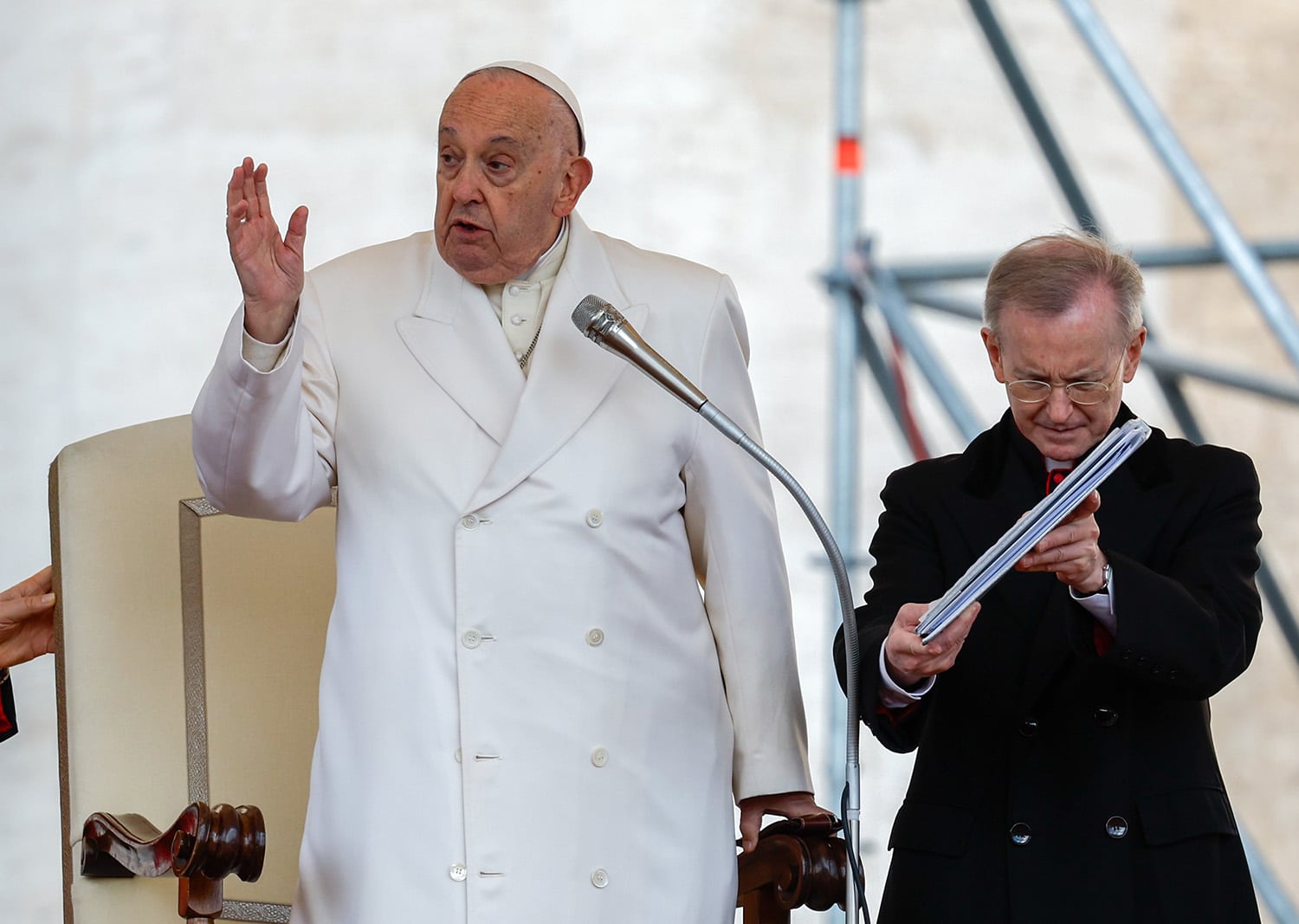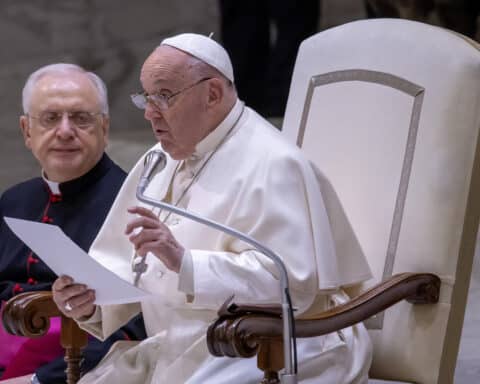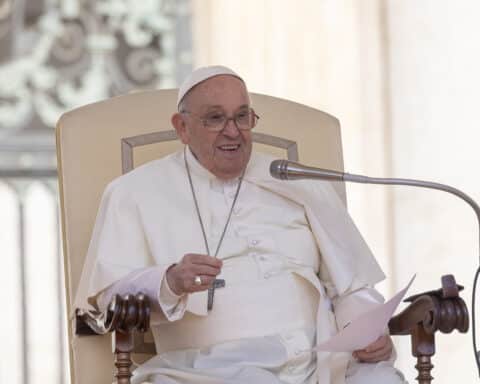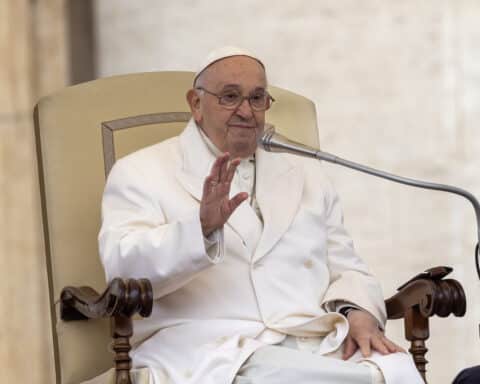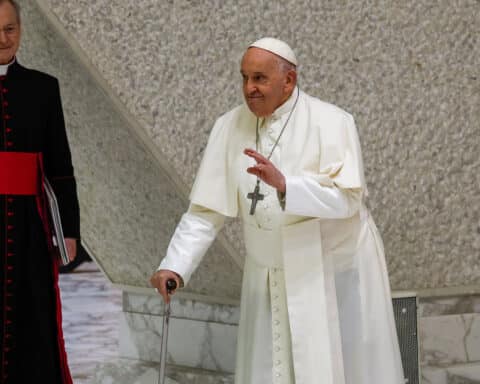VATICAN CITY (CNS) — While the virtues of prudence, justice, fortitude and temperance are the marks of a righteous individual, the virtues of faith, hope and love emphasize a connection to other people fueled by belief in God and reliance on prayer, Pope Francis said.
“The Christian is never alone. He or she does good not because of a titanic effort of personal commitment, but because, as a humble disciple, he or she walks behind the master Jesus,” the pope said April 24 at his weekly general audience.
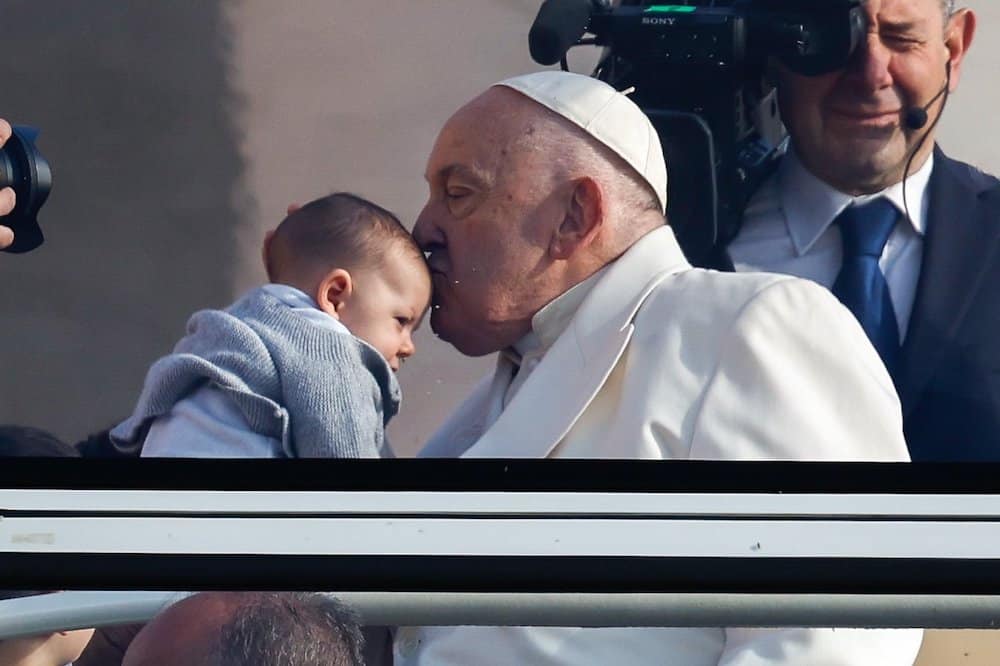
Bundled up in a coat on a chilly spring morning, Pope Francis continued his audience talks about virtue, distinguishing between the “cardinal” — meaning “hinge” — virtues of prudence, justice, fortitude and temperance, which are essential for living a righteous life, and the “theological” or New Testament virtues of faith, hope and charity.
Cardinal and theological virtues
The cardinal virtues were espoused and promoted by ancient philosophers well before the development of Christianity, the pope said. “Honesty was preached as a civic duty, wisdom as the rule for actions, courage as the fundamental ingredient for a life that tends toward the good and moderation as the necessary measure not to be overwhelmed by excesses.”
Christianity, he said, did not replace that ethical heritage, but “enhanced, purified, and integrated” it with the teachings of Jesus about faith, hope and love.
The Catechism of the Catholic Church, the pope noted, says the three theological virtues “are the foundation of Christian moral activity; they animate it and give it its special character. They inform and give life to all the moral virtues.”
Those virtues, he said, also are “the great antidote to self-sufficiency” and prevent a good person from falling into pride.
“Pride is a poison; it is a powerful poison: one drop of it is enough to spoil an entire life marked by goodness,” the pope said.
If people perform good works only “to exalt themselves, can they still call themselves virtuous? No,” he said.
“Goodness is not only an end, but also a way. Goodness needs a lot of discretion, a lot of kindness,” the pope said. “Above all, goodness needs to be stripped of that sometimes too unwieldy presence that is our self.”
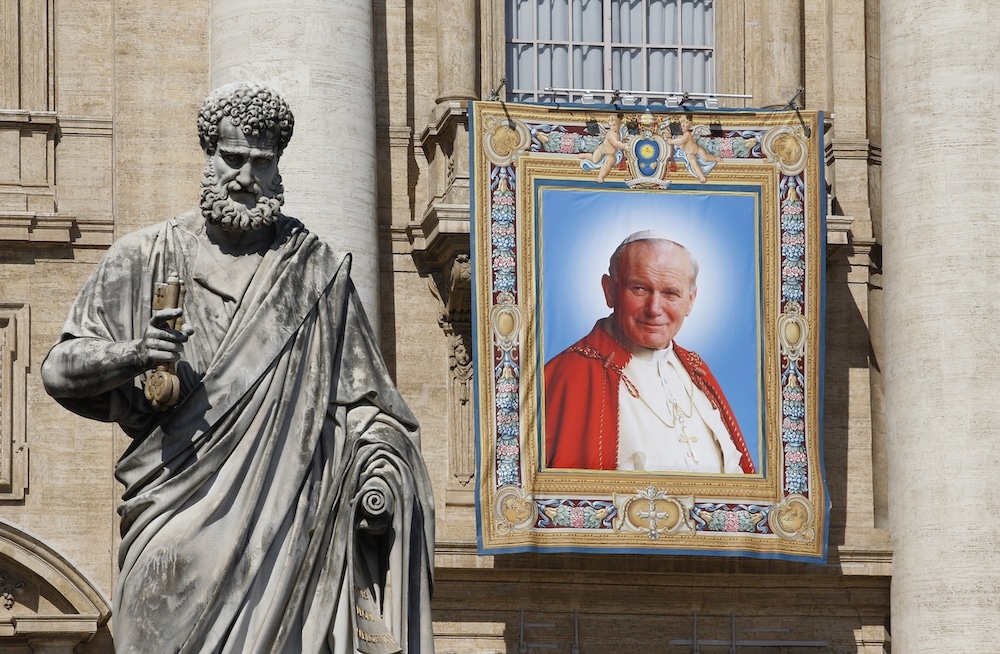
Celebrating St. John Paul II
Greeting Polish pilgrims, Pope Francis noted that April 27 is the 10th anniversary of the canonization of St. John Paul II. “Looking at his life, we can see what man can achieve by accepting and developing within himself the gifts of God: faith, hope and charity.”
Amid an ongoing debate about liberalizing the nation’s abortion laws, Pope Francis asked Polish Catholics to “remain faithful to his legacy. Promote life and do not be deceived by the culture of death.”
Expressing his ongoing concern about wars in Ukraine, the Middle East and Myanmar, Pope Francis encouraged people to ask, through the intercession of St. John Paul, “for the gift of peace to which he, as pope, was so committed.”

